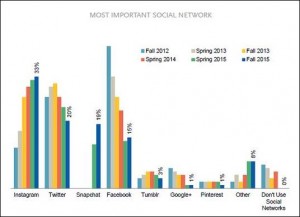By Ethan Karp

As a leader, I have a confession. Maybe similar to you, I likewise indulge in the occasional reality television binge. When the stress of a thousand work days has me feeling run down, I will acquire a ridiculous amount of popcorn and gummy candy, sink into the couch, and let the pleasures of lowest-common-denominator entertainment wash over me.
The achiever inside me fights this relaxation with all it has, layering on the guilt thick, but I’ve learned the hard way through the years that it’s critical I take time to slow down. If I don’t, stress and fatigue can morph into something much more severe.
That’s what happened to me earlier in my career, during three years of intense management consulting in which I was sleeping just four or five hours a night. My emotional regulation went out the door, I stopped looking out for my mental health, and I became depressed. It was only through years of therapy and medication that I regained equilibrium.
As leaders, we are privy to a level of resources many of our employees are not, and free from some of the risk factors facing frontline workers in my industry, manufacturing. Our privilege is a responsibility—to make decisions that put our employees in the best possible position to manage their own mental well-being. At the same time, we are ourselves no less susceptible to the struggles that penetrate every part of an organization.
Over the years, I’ve developed some guidelines that help me keep track of my mental health and ensure I’m appropriately recharging so I can be at my best.
Learn to accept your limits
When I do sink into the couch, it’s not uncommon that a series of questions begin to bounce around my head. What future opportunity am I missing out on by giving away this time? Who could use my help? What else could I be doing? Am I working less than other employees? What’s the current state of my inbox?
As leaders, we have many people relying on us, and during certain stretches it can be difficult to justify taking even a night off. But ultimately, like your employees, you have both physical and mental limits. Learning to accept them can help you understand the importance of fighting through guilt to fully recharge, even if it takes a few minutes to power down the engines.
Take guilt and anxiety in context
Still struggling to decompress? Consider this: Emotions such as guilt and anxiety are vestiges of a time when just about everything threatened our safety. Some 80,000 years ago, hunter-gatherers who failed to stay vigilant were liable to become dinner for another species.
Once you’ve identified that you’re not giving yourself permission to truly rest, try acknowledging that what you’re experiencing may in fact be your brain’s survival instincts reminding you to look out. These emotions don’t help once you’ve analyzed your best course of action, so let them go and thank your brain for looking out for your “safety” at work.
And then, get some rest, since it’s one of the most effective ways to recharge and fight burnout.
Seek out the support of your peers
For leaders, the old boiling frog fable rings true. We’d surely recognize the erosion of our mental health if it happened suddenly, like jumping from room temperature into an already boiling pot of water. But we’re all too willing to ignore warning signs as the water around us slowly goes from tepid to warm to hot—and then boils over.
That’s where having a support network comes in. It’s often easier for those closest to us to recognize the signs before it’s too late. You can and should empower those peers to approach you with empathy when they notice you’re beginning to falter. Of course, it’s still on you to believe them and take the steps you need to get back on track.
Remember that your actions trickle down
Employees’ most desired mental health resource is an open culture around the topic at work, according to The State of Workplace Mental Health in the U.S. in 2021 from Mind Share Partners and Qualtrics. Meanwhile, the most common obstacle to self-care is leaders who don’t promote mental health.
One way to help tackle both? Tell your own story. “Leaders should serve as allies by sharing their own personal experiences to foster an environment of transparency and openness,” write the authors of this study in the Harvard Business Review. Your vulnerability will not only help rally the troops when you yourself are struggling, but it can foster an environment that will actively improve the well-being of your team. Employees who feel supported by their employers with their mental health are half as likely to report symptoms that last 5 to 12 months and are 5.5 times more likely to trust the company and its leaders, the report says.
Long story short: Don’t discount your anxiety, depression, or exhaustion. Even leaders are allowed to struggle, and only when we learn to deal with our fatigue can we be fully ready to take on the twists and turns surely ahead in 2022.
Ethan Karp is the CEO and president of nonprofit consulting group MAGNET, which stands for the Manufacturing Advocacy and Growth Network.
Fast Company , Read Full Story
(18)
Report Post




